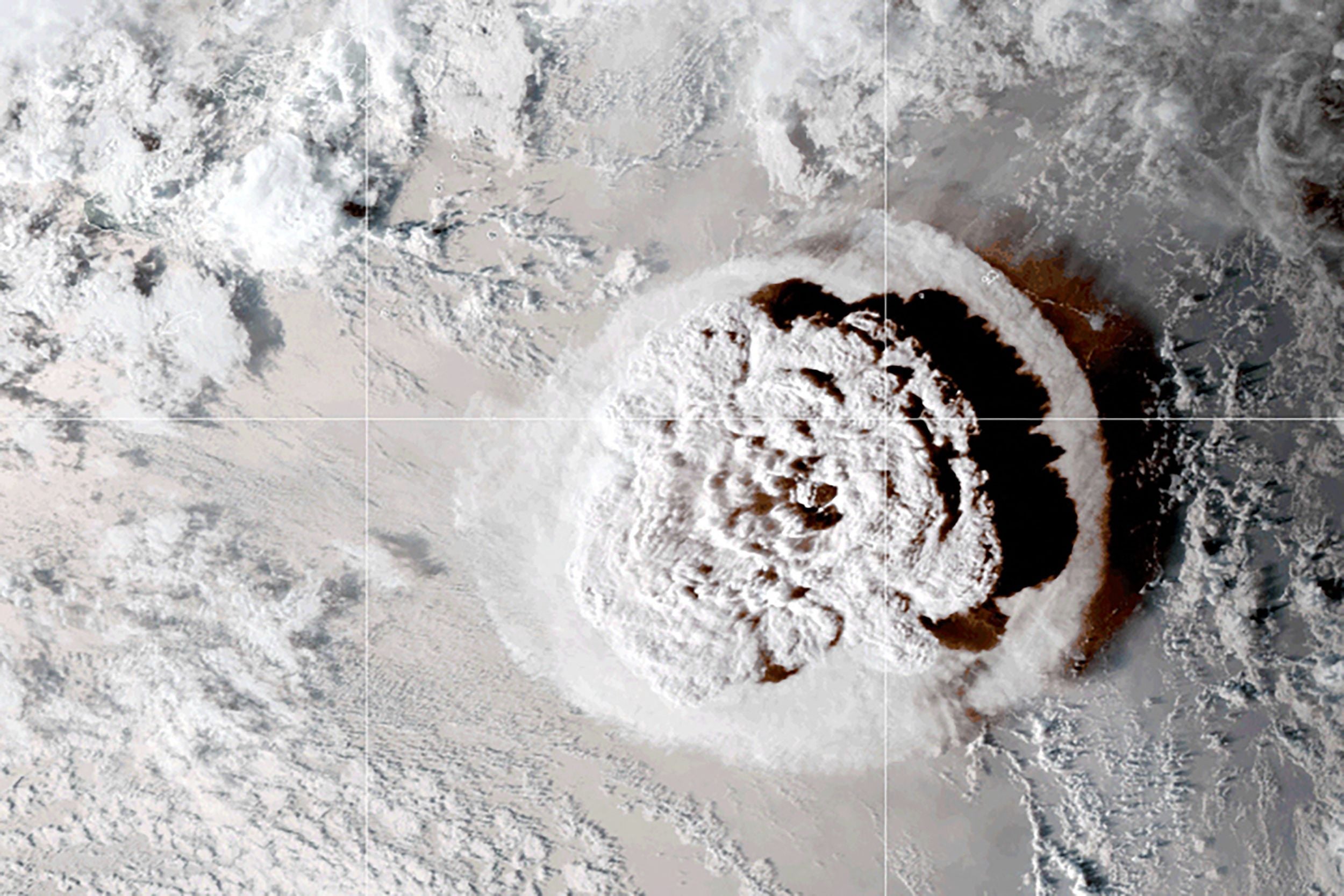China offers to help rebuild Tonga after volcanic eruption
Ash plume from the explosion may have reached a height of 20 kilometres, say experts

Chinese president Xi Jinping has offered to help rebuild parts of Tonga that were destroyed by an enormous volcanic eruption.
Last week’s explosion and the tsunami it triggered caused at least three deaths and substantial property damage on Tonga’s small outer islands.
The pledge from China comes as scientists warn that the mixing of volcanic ash with seawater could lead to significant toxic health and environmental hazards.
These include contamination of drinking water, acute and chronic threats to health, as well as risk to livelihoods such as small-scale agriculture, a team of scientists from Cornell University, heading the NASA-funded study, concluded.
Enormous amounts of substances such as chlorine were released during the explosion and when mixed with gases from the magma, it created a potentially lethal cocktail that forms salts and acidic brines on the ash particles, said Adrian Hornby, a researcher on the project.
“Previous studies at Hunga-Tonga Hunga Ha’apai have shown that the ash carries some of the highest burdens of salts ever recorded, which may contain highly toxic species such as sulfur, chlorine and fluorine,” Mr Hornby said, reported Newswise.
He added: “These salts get deposited with the ash and can be easily leached by rainfall, causing an immediate hazard to water quality, agriculture and the natural environment.”
Principal investigator Natalie Mahowald warned that ash released from volcanic eruptions contain “both pollutants and nutrients, which can shift the ecosystems in dramatic ways”.
Pointing to dramatic ecological impacts, Ms Mahowald said that previous eruptions have produced iron-rich ash. Experts also believe the ash could be discharged further than previous explosions.
“There are preliminary reports that hydrogen chloride concentrations have been detected by satellite at higher than usual levels in the atmosphere over Tonga,” said Matthew Pritchard, the co-principal investigator on the project.
He added: “Since water-magma interaction produces very fine volcanic ash and the ash plume appears to have reached at least 20km (12 miles) altitude, I expect the ash will disperse over a much broader region than previous eruptions.”
The Tonga explosion has been dubbed “something very different” as when volcanoes erupt underwater, they create small ash clouds, unlike here.
At least three smaller islands in Tonga have suffered significant damage from the tsunami waves as the ground picture is beginning to emerge after the destruction.
Three people have been confirmed dead, including a British aid worker, and tens of thousands have been impacted authorities said, expecting the toll to rise in the coming days.
Subscribe to Independent Premium to bookmark this article
Want to bookmark your favourite articles and stories to read or reference later? Start your Independent Premium subscription today.

Join our commenting forum
Join thought-provoking conversations, follow other Independent readers and see their replies